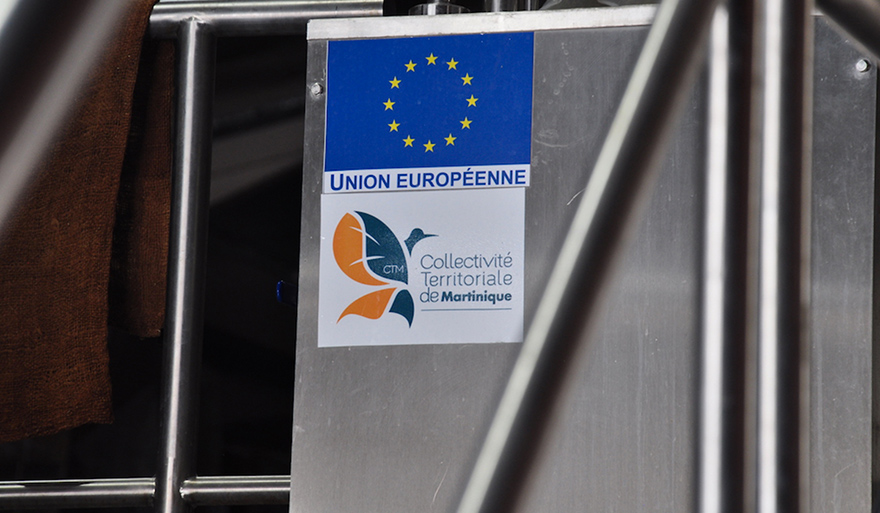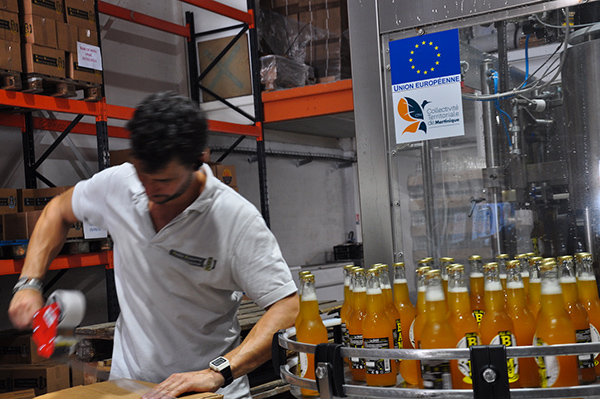Can EU funds help Martinique catch up economically with mainland France?
Badly hit by the current economic situation, the French island of Martinique is benefiting from REACT-EU (Recovery Assistance for Cohesion and the Territories of Europe). This aid programme was created to help less developed EU regions catch up economically. It may be a means of bridging the gap between Martinique and mainland France.

Martinique (France)
"Abandonment", "poverty", "social rage", "cost of living"... These words may not be the first to come to mind when thinking of France's overseas territories, mostly known for their sunshine and beaches. But the lives of the local people there differ greatly from those in metropolitan France. The negative disparities are long-standing, and concern all the main indicators: unemployment, cost of living, and poverty. The various challenges faced by mainland France are even worse in its remote territories.
Among French regions, Martinique has been one of the biggest beneficiaries of the European recovery plan. It has received more than €500 per person, compared to about €50 for the Hauts de France region in northern France, for example. The aid is supposed to address the conjunctural crisis currently afflicting the French Antilles. In reality, the crisis has been ongoing there for a long time already.
Protests, but no change
In November 2021, a general strike broke out on the islands of Guadeloupe and Martinique. Starting as a protest movement against the health restrictions of the time, the demonstrations gradually shifted towards grievances about the cost of living, unemployment and, more generally, a feeling of abandonment by the French government. Similar protests in 2009, following another economic crisis, had already voiced these concerns.
Many in the French Antilles consider that the mainland has made no effort to change the prevailing economic situation. With a central government based thousands of kilometres away, such tensions have only added to long-standing antagonism in these regions, the last remnants of the colonial era.
Financial disparities like those experienced by Martinique’s are a factor in the EU's efforts to reduce regional wealth differences across Europe. The ERDF (European Regional Development Fund) and the ESF (European Social Fund) can both address them by encouraging the creation of jobs and businesses, specifically via support for small and medium-sized businesses, as well as for education and training.
But is this aid really effective in solving problems? Here are some examples of companies that have applied, successfully or otherwise.

Funds that help you get started…
"Word of mouth" is how Aymeric Vasson explains having heard about this European aid. The adventure began in 2018, when he and his brother Frédéric, from the Ardennes, set about creating the Petite Brasserie Martiniquaise. They had already been on the island for 13 and 23 years respectively.
To prepare the application for funding, they called on a firm specialising in this type of dossier. "They advised us, and our application took about a year and a half to be accepted. The funds were then used to pay back the loans we had taken out at launch. Without help from the specialists, it's certain that it would have taken longer. It's difficult when you have a job on the side," says Aymeric Vasson.
The problem of application procedures was raised a few years ago by the French senator for Martinique, Catherine Conconne, who remarked: "The use of European funds is often a problem for us because our companies are small. It is complicated for them to put together a dossier for European funds. They often lack the technical skills to do so and their cash flow is insufficient to wait for the funds to be paid out." And in practice, some businesses can wait a long time for the payment.
…but which do not always achieve their objective
Hidden among the green hills of Martinique's east coast, on the road between Le François and Le Vauclin, Holdex Environnement is one of the leaders in the recycling of organic waste in Martinique. Their latest innovation is a composting process for sargassum, an algae that is invading Martinique's beaches. To help develop its sector, the company is applying for ERDF assistance on its own. Their application was submitted in 2018. Since then, nothing has been heard: "We haven't received a single euro yet."
The database of beneficiaries indicates that the company is eligible for nearly 24 million euros from the European Union within the framework of the ERDF, and even that it has already received 6 million. But the company is still waiting for its money, and its development has been stopped for the past four years. This has been "a pivotal period where we have already started to develop, but this lack of funding is a major obstacle," laments Mike Bernus, founder of Holdex. "Most Martinique companies need this money to stay competitive. We are in an island environment, 6,000 kilometres from the mainland. Everything is more expensive and harder to get."
Financial support is almost indispensable for some companies, such as those that import goods for tourists. They have to pay for maritime shipping, and much of the European funding is used to this end: the list of beneficiaries shows that around €460 million of the €735 million distributed during the 2014-2020 period was used to compensate for additional transport costs.
The money is therefore spent mainly on protecting the competitiveness of businesses. Projects of investment or business-creation account for less than half of the European money sent to Martinique.
The objective of these European funds does not therefore seem to be fully met. There appears to be a lack of liaison between Martinique's regional government (Collectivité Territoriale de Martinique, CTM) and the many small businesses on the island. Many of these do not have access to consultancy firms or the time to do complex paperwork themselves, but could really benefit from European funding.
Another point of improvement would be to shorten waiting times, which might speed up the economic recovery that the people of Martinique need. The CTM did not want to comment.
 This article was produced as part of the Union Is Strength competition, organised by Slate.fr with the financial support of the European Union. The article reflects the views of the author and the European Commission cannot be held responsible for its content or use.
This article was produced as part of the Union Is Strength competition, organised by Slate.fr with the financial support of the European Union. The article reflects the views of the author and the European Commission cannot be held responsible for its content or use.